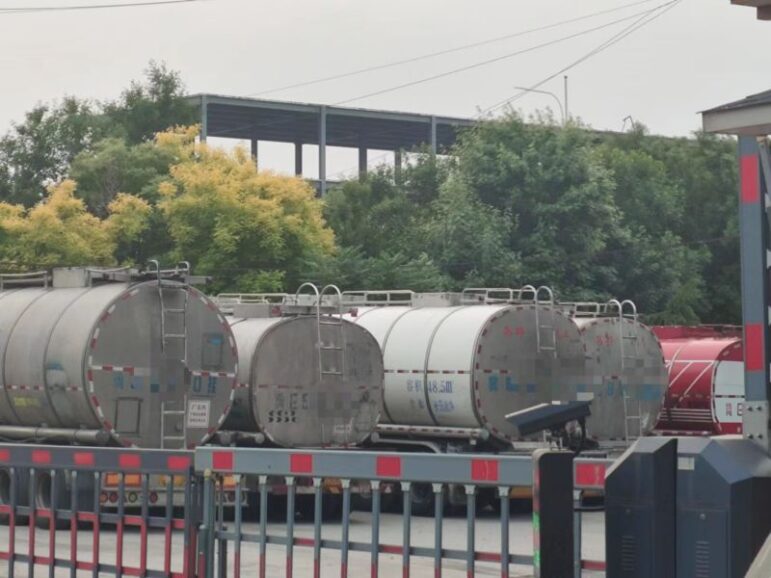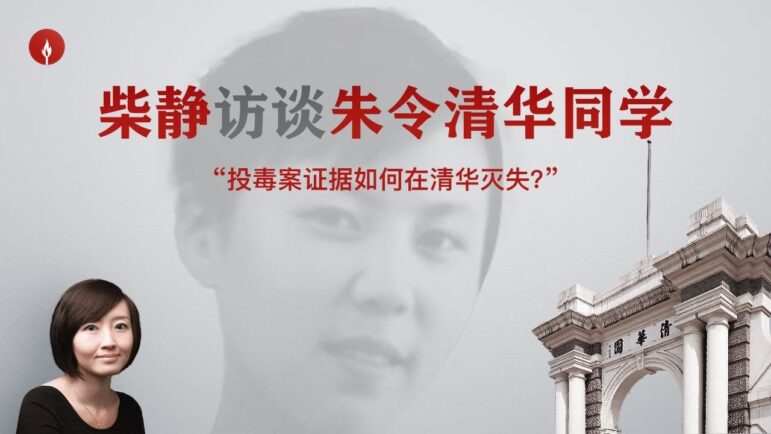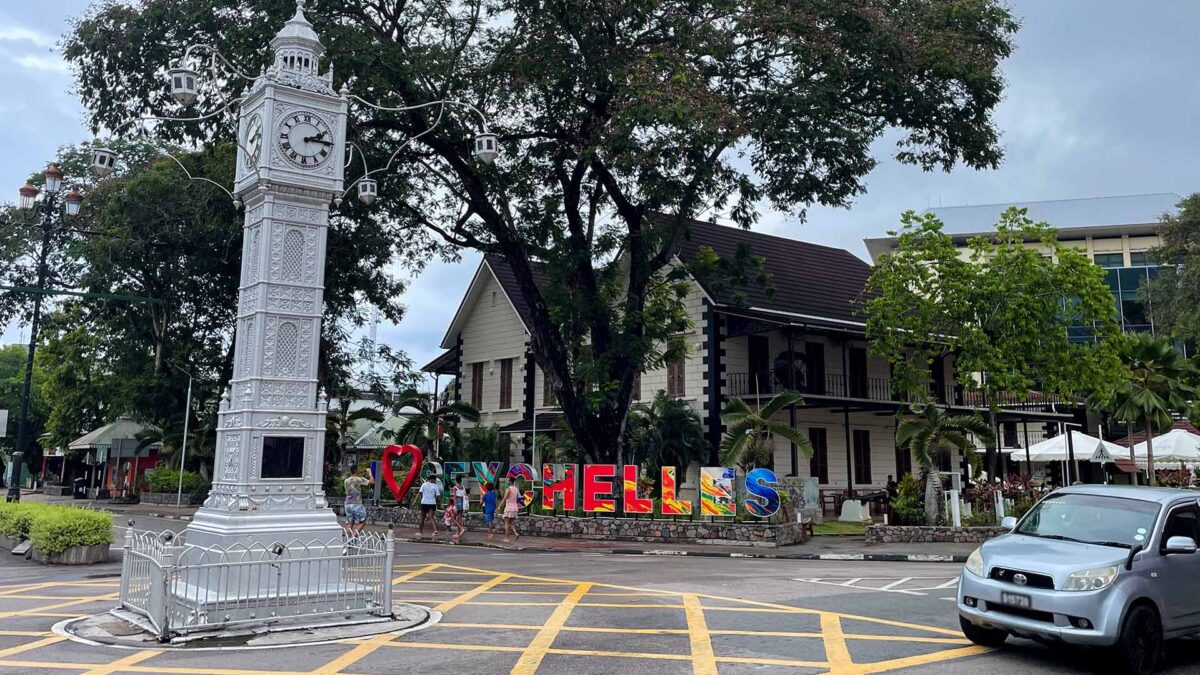
Investigative journalism in China operates under notoriously challenging conditions. While numerous in-depth stories are produced every year, genuine investigative journalism remains exceedingly rare. This is why in recent years Editor’s Picks GIJN has had to pivot from featuring investigative reporting “in China” to “about China” — investigative pieces published within China are scarce, but there’s no shortage of excellent investigative work about the country.
In 2024, two investigations took China by storm. The first exposed a death caused by torture during police interrogation, and the second delved into the chaotic practices in the tanker truck industry, where some vehicles were found to be transporting edible soybean oil right after unloading coal for fuel production, posing significant food safety risks. Although the first story was swiftly censored, Chinese netizens rallied to spread it far and wide, revealing to many the brutal reality of China’s “crackdown on crime” campaign. While it did not lead to substantial change, the heightened public scrutiny undoubtedly served as a deterrent to police brutality. The latter story on the tanker truck industry, meanwhile, sparked a massive public outcry, prompting Chinese authorities to intervene and launch a comprehensive overhaul of this long-standing systemic issue. These events reignited the Chinese public’s appreciation for the power of investigative journalism, a craft that had grown somewhat stagnant in recent years.
Meanwhile, overseas media’s investigations on China in 2024 were particularly noteworthy. Some probed China’s potentially genocidal policies in Xinjiang, while others exposed a web of collusion among China’s elite. Several investigations focused on Chinese communities abroad, including those who had overcome immense adversity to seek a new life in the US, as well as a complex fraud perpetrated on vulnerable Chinese immigrants.
Below are our picks for 2024’s best investigations relating to China.
The Tragic Death of Suspect Sun Renze
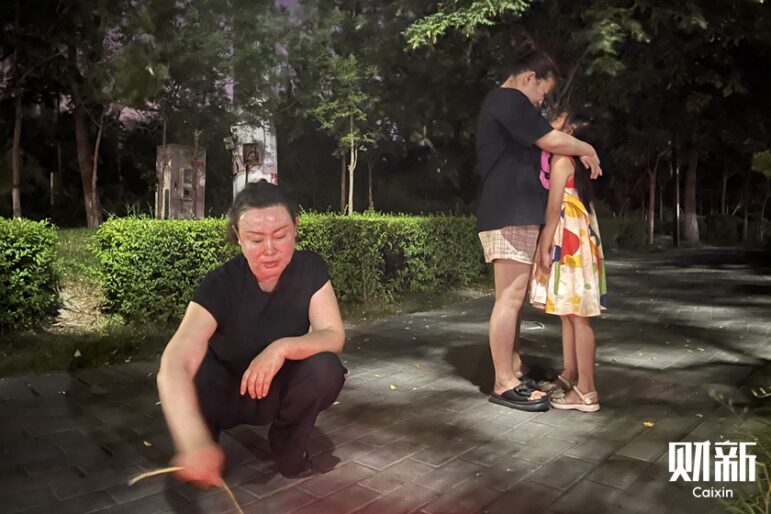
Sun Renze’s mother, Ren Tingting, along with her daughter-in-law and granddaughter, burned joss paper on the street to console her son’s spirit. Image: Caixin, Wang Heyan
In 2018, 30-year-old Sun Renze was detained by the police on suspicion of “picking quarrels and provoking trouble.” During his detention, he was subjected to brutal interrogation tactics that ultimately led to his death. The police claimed that Sun had choked while “drinking water,” but his mother, Ren Tingting, rejected this explanation. Over the next four years, she tirelessly fought for justice for her son’s unexplained death. Finally, in November 2023, eight police officers involved in the case were sentenced to prison terms ranging from three to 13 years for intentional injury.
This investigation not only pieced together the events leading to Sun Renze’s death through court records and relevant evidence but also exposed the ruthless nature of China’s “crackdown on crime” campaign. Some of the police officers involved in the case had been warned by their superiors that failure to extract a confession of Sun would brand them as “protective umbrellas” for the criminal underworld. It was this high-pressure policy and the lack of oversight of police power that indirectly contributed to Sun Renze’s tragic fate. Although the investigation was swiftly censored after its release, Chinese internet users defied the risk of account suspension and shared it widely on their social media platforms. As a result, this suppressed investigation became a viral sensation in China in early 2024, drawing unprecedented attention to the dark realities of the country’s law enforcement practices.
Investigating the Trucking Industry
This groundbreaking investigation on the trucking industry by The Beijing News revealed that many tanker truckers routinely break rules about which liquids they are allowed to transport and often alternate between a range of substances, including edible oil, coal-based oil, industrial wastewater, plasticizers, waste oil, and non-hazardous chemical liquids such as water reducers. When switching between cargoes, these trucks frequently forgo cleaning procedures, leading to contamination by residual chemicals. The investigation also implicated major grain and oil companies in this practice, including a state-owned enterprise that benefits from government policies.
The story sparked widespread public concern, coverage in other media, and prompted the formation of a joint investigation team involving multiple national ministries and commissions. At the end of August, the authorities released their findings, acknowledging the dangerous practice and imposing penalties on implicated companies. Additionally, a targeted rectification campaign was launched to address the issue.
Unraveling the Mystery of Zhu Ling’s Thallium Poisoning Case
Independent investigative journalist Chai Jing dug deep into the mysterious poisoning of Zhu Link. Image: Screenshot, YouTube
In 1995, Zhu Ling, an undergraduate chemistry major at Tsinghua University in Beijing, was intentionally poisoned. The lethal element thallium was found in her body, which caused severe neurological damage and lifelong disability. The case aroused widespread public concern, and the police quickly found a suspect but then hastily closed the case due to “insufficient evidence.” The case remains unsolved, and Zhu Ling died in December 2023.
Through a series of in-depth interviews with the expert who analyzed Zhu Ling’s hair, her former classmates at Tsinghua, and her parents, independent investigative journalist Chai Jing sought to piece together the puzzling details surrounding the incident. The three-part interview series focused on critical questions: What can the accumulated dosage and timeline of heavy metal traces in Zhu Ling’s hair reveal about the events leading up to her poisoning? How did vital evidence in the thallium poisoning case inexplicably vanish from Tsinghua University? And perhaps most importantly, why did an investigation that appeared to be progressing smoothly suddenly grind to a halt?
Unmasking the Shady Business of “Black Agents” Helping Mainland Students Study in Hong Kong
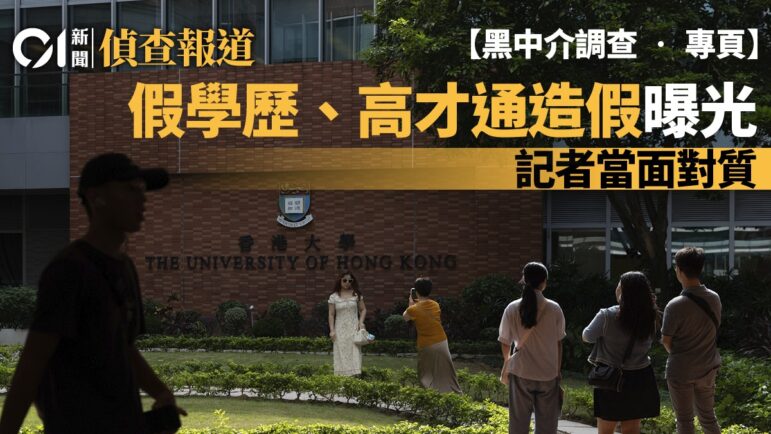
Image: Screenshot, HK01
This past year, several Hong Kong universities were rocked by scandals involving fake academic credentials. Many applicants from mainland China were found to have used falsified qualifications to apply to these institutions. Often, what sits behind these applicants are study abroad agencies that, for a hefty fee, provide a comprehensive service, including the fabrication of fake application materials and the submission of applications to universities. The University of Hong Kong (HKU) has revealed that some agencies have gone as far as forging entire sets of transcripts and graduation certificates from top US universities, sending them directly to HKU from the US. The forged documents, including transcripts, degree certificates, envelopes, and seals, are nearly indistinguishable from the genuine ones.
The local news outlet HK01 spent months investigating this issue, publishing multiple stories. Beyond going undercover to contact several mainland study abroad agencies and uncover their forgery techniques, the reporters also discovered Hong Kong companies openly advertising fake degree services. Even more alarmingly, some have hinted at “cooperating” with mainland international English testing centers, raising suspicions of these companies bribing overseas schools and exam centers to provide “authentic” certificates to their clients.
Blood on the Shelves: The Secrets of Xinjiang’s Tomato Industry
This year-long BBC investigation revealed that major supermarkets in the UK and Germany may have unwittingly sold ketchup made from tomatoes harvested by forced laborers in China’s Xinjiang region. Conducting research in Xinjiang is notoriously difficult, but the BBC team worked with publicly available information, including social media searches, satellite images, corporate records, and shipping data. This allowed them to gain a comprehensive understanding of the reality on the ground and trace the journey of these tomatoes from forced labor fields to European shores.
The investigators spoke with over a dozen Uyghur and Kazakh exiles, shedding light on the oppression faced by these ethnic groups due to their language, religion, and cultural identity. Several witnesses, breaking their silence for the first time, recounted to the BBC their experiences of being compelled to perform backbreaking work in the tomato industry. They provided harrowing details of the severe punishments meted out to those who dared to dissent or failed to meet stringent quotas.
Walk The Line
Following three years of “zero-COVID” policy, China’s economy faces a crisis. Political pressure and economic decline have spurred many Chinese people to try for a new life in the United States. According to data from US Customs and Border Protection, Chinese nationals are now the fastest-growing migrant group trying to get into the US from Mexico. They face a long, dangerous journey to get there: first to Ecuador, the country closest to the US that grants Chinese passport holders visa-free entry. From there, they need to cross Colombia, Panama, Costa Rica, Nicaragua, Honduras, Guatemala, and Mexico to reach California.
In this three-part investigative documentary series from Singapore-headquartered Channel News Asia, correspondent Wei Du and a team of journalists trek the long route with Chinese migrants to find out what has driven them to “walk the line,” the challenges and dangers they face on the way — traversing jungle, the Darien Gap, and drug cartel territory — and what awaits them when they arrive. They also produced a behind-the-scenes documentary in which the team shares the challenges in making the trip and producing the film.
The Billionaire Criminal Who Secretly Profited Off Jack Ma’s Deals

Image: Shutterstock, Gil C
A joint investigation by The New York Times and Wired China obtained confidential documents revealing that a corrupt investor — the now-imprisoned Chinese tycoon Xiao Jianhua — was linked through investments of around US$1 billion to the companies of one of China’s most successful entrepreneurs. According to the report, an investment firm run by the tycoon secretly amassed substantial stakes in several companies under the umbrella of Alibaba Group founder Jack Ma. The reporting team reviewed more than 2,000 confidential documents that created a paper trail to a clandestine acquisition spree spanned five years, they write, and was facilitated through a network of shell companies and proxies, all evading public disclosure. (They note that the documents do not show that Jack Ma was aware of any investments.)
In the past, Xiao Jianhua has acted as a front man for the families of high-ranking Chinese Communist Party (CCP) officials, helping them transfer wealth overseas and orchestrating asset deals. In 2017, Xiao Jianhua was seized at a luxurious Hong Kong hotel and taken back to mainland China. Subsequently, he was sentenced to 13 years in prison on charges ranging from bribery to corruption. His financial empire was vast, with controlling stakes, shareholdings, and indirect ownership in scores of listed companies.
In response to the story, Alibaba issued a statement denying any commercial ties between Jack Ma and Xiao Jianhua. It also questioned the credibility of sources and the veracity of the claims cited in the report.
Is a High-Profile Critic of the Chinese Communist Party a Con Man?
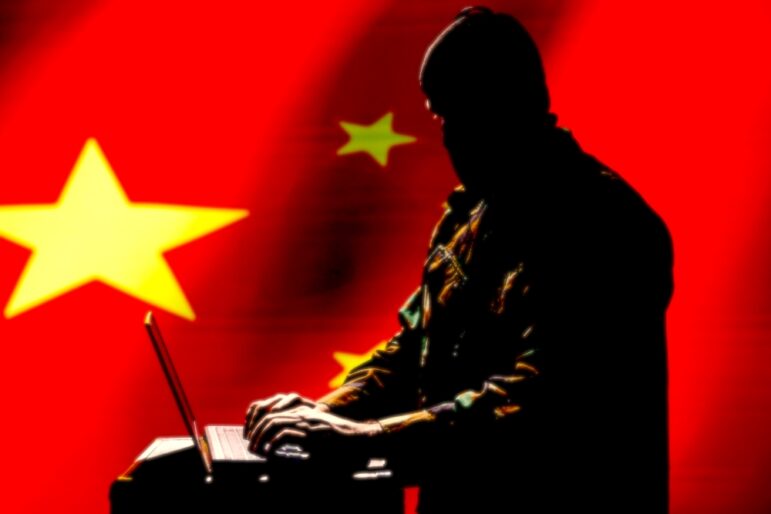
Image: Shutterstock
This investigative report from a team at NPR unravels an “elaborate long con” in which a Chinese dissident in the Netherlands, Gao Zi, was defrauded out of US$17,000. He and his family were manipulated through fake email accounts purporting to be, among others, Thai police, Thai Airways, and a Dutch immigration authority. The intent of the ruse was to trick them into thinking they’d been implicated in bomb threats against Chinese embassies and European airports and get them to turn over credit card details. At first, Gao believed the Chinese government may have called in the bomb threats using his name, as a new form of transnational repression — perhaps because of his close association with a high-profile fellow dissident.
But when NPR tried to corroborate Gao’s story, they discovered that all the email accounts were forged; the European police also said they had never heard of these bomb threats. Gao now believes a dissident friend — the “one common thread” in the story — was behind the fake email accounts. The dissident, when questioned by NPR, denies any involvement. Investigative reporter Frank Langfitt pored over more than 700 emails and months of private messages and conducted dozens of hours of interviews, including with Gao Zhi and his son, to build a “road map” of the complex scam. But beyond those details, NPR explains how this is also “a story about how the fear that the Communist Party generates can spread like a virus among its critics overseas and be weaponized by almost anyone.” It also raises questions about the role of the media in such cases; Gao Zhi admitted that he had trusted his friend due to the extensive media coverage he had received from reputable outlets.

